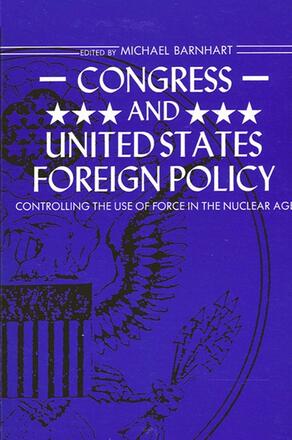
Congress and United States Foreign Policy
Controlling the Use of Force in the Nuclear Age
Alternative formats available from:
This book directly explores congressional efforts to control the ability of the Chief Executive to use force. It examines the influence Congress has wielded over nuclear arms control, and reveals how Congress has operated to channel American military assistance, covert actions, and open warfare over the past forty years.
Description
Congress has become increasingly assertive in the exercise of its war powers. No longer content to write the President blank checks such as the Tonkin Gulf Resolution that helped lead to intervention in Vietnam, Congress has revived and constructed a variety of mechanisms to control America's use of force abroad. This is the first sustained, focused analysis by America's foremost historians and policy analysts of how Congress directs U.S. foreign policy on aggression.
Michael Barnhart is Assistant Professor of History at the State University of New York at Stony Brook.